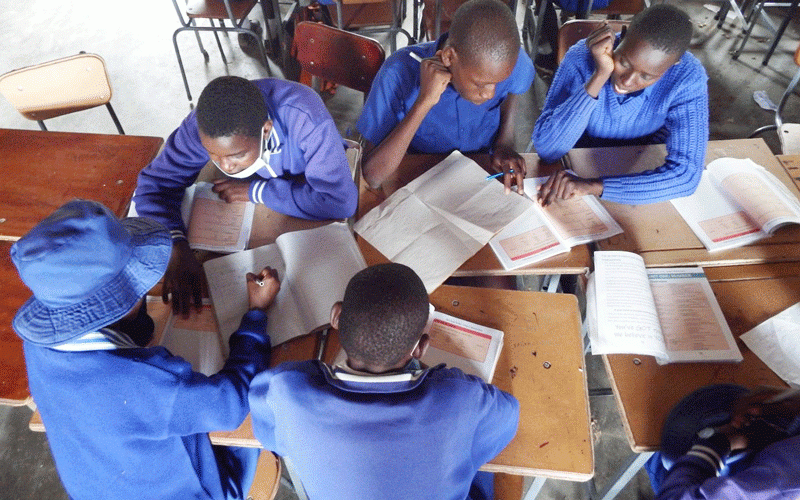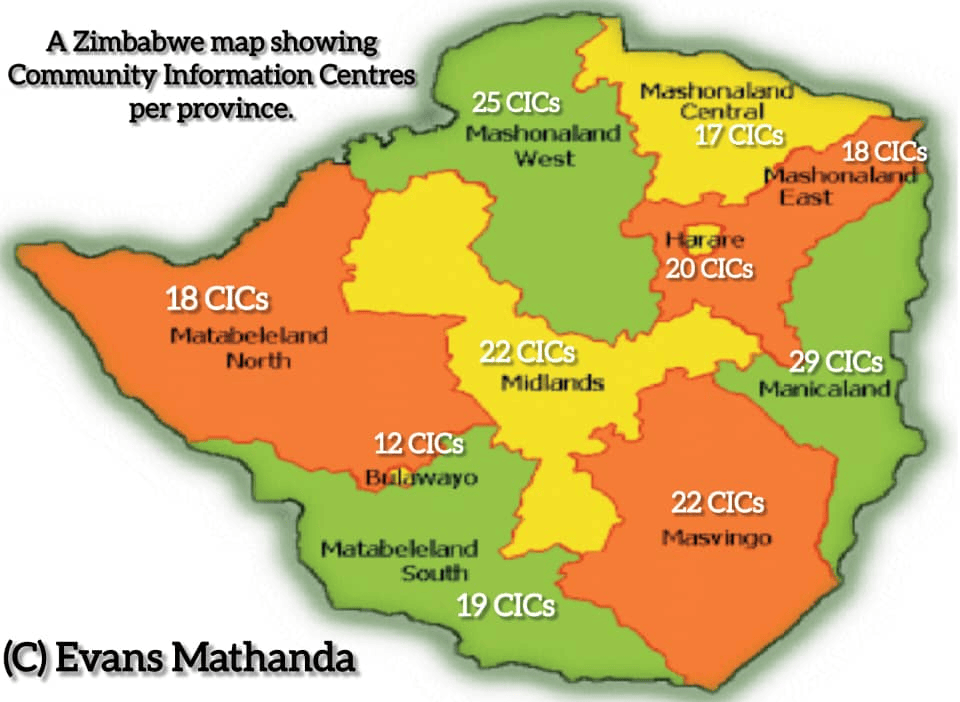
Murewa — Farirai Gatsi, a Grade Seven pupil at Muneno Primary School in Murewa, walks about 5km to be at school by 6:30am and is usually among the last to leave. She uses the extra time to join a group discussion or scour textbooks for information that may help her better prepare for impending examinations.
“Waking up in the morning is just a small sacrifice I have to make to get good grades. More importantly, I now have the textbooks to use,” she said, holding an agriculture textbook.
Muneno Primary School is one of the thousands of primary schools across the southern African country of 15 million people that have benefited from the provision of textbooks funded under the Global Partnership for Education programme in partnership with Unicef and the Primary and Secondary Education ministry.
Farirai wasn’t always committed to the school. Before the provision of textbooks, school days were the worst days for 12-year-olds.
Fights would frequently break out among pupils tussling for the scarce but critical resource. Tiny in stature, Farirai recalled being at the receiving end of the bullying to the extent that school turned from a learning hub into a dreaded place of torment.
“The textbook shortages always resulted in conflicts; it caused much bullying in the class. I am the youngest, and also, I have a small body so I would suffer because the bigger ones would use force to grab the textbooks for themselves,” she recalled. “Right now, each one has their textbooks; bullying has stopped. I am enjoying my studies in peace.”
Unlike before, she doesn’t have to rely only on the work given by the teacher or spend hours copying from the board.
“The teacher simply refers us to the textbook for our homework. I can also go the extra mile by using textbooks to read and research further. We don’t have reliable internet here, and even if we had internet, most of our parents can’t afford to buy us smartphones or data, so these textbooks are our primary source of information for research,” she said.
- Textbooks turn learning into joy in rural schools
Keep Reading
Zimbabwe introduced a new education curriculum in 2017 to promote competence-based learning resulting in the incorporation of several new subject areas. This worsened an already crippling shortage of textbooks at many schools.
But the GPE intervention, which saw the distribution of textbooks in five phases, has drastically improved the situation for millions of learners at thousands of primary and secondary schools from impoverished communities in the country’s 72 districts.
In 2021, Unicef delivered nearly 220 000 Mathematics textbooks to Form Four pupils at about 3 000 schools. This was in addition to other books for Forms One, Two and Three pupils distributed during prior phases.
At the primary school level, Unicef has been distributing textbooks to cover six learning areas. These are Agriculture, Science and Technology, Visual and Performing Arts, Family, Religion and Moral Education, Physical Education, Sport and Mass Display and Information Communication Technology.
The subjects were identified because they were relatively new after introducing the new curriculum, and materials were acutely in short supply.
Learners and teachers describe the interventions as having greatly boosted preparations for end of year Grade Seven public examinations that are crucial for progression to high school.
Unicef also provided Mathematics textbooks for Grade 7 classes. Further, self-study guides for English and Mathematics distributed during the peak of the Covid-19 outbreak when schools experienced repeated closures are coming in handy.
In total, pupils at more than 6 000 primary and secondary schools have received about 17 million textbooks covering various learning areas.
The response from pupils — both socially and academically — has been overwhelmingly encouraging, say authorities at beneficiary institutions such as Muneno Primary School.
“We have noticed a big difference in pupil-to-pupil relationships. Pupils used to fight for the few available copies and would end up tearing the textbooks in the process. Cases of bullying over textbooks are now a thing of the past,” said Tecla Chapfika, head of Muneno Primary School.
Bullying can be a significant problem for school-going children, according to Unicef, which notes that quality, inclusive and safe education can help children build friendships and gain the critical skills they need to navigate social situations and put them on the path to a promising future.
Take Muneno Primary School. The pass rate has skyrocketed due to the renewed interest in learning, said Chapfika, the school head.
“Since we started receiving these textbooks, the pass rate has increased. We usually hovered around 30%, went up to 45%, and the latest results from 2022 showed that we had a pass rate of 89% at Grade Seven because of these textbooks,” she said.
At nearby Chamapango Primary School, an ICT lesson was underway on a recent day, and the vigour by pupils to participate was palpable. The teacher posed a question. Dozens of hands immediately went up. Those who needed to figure out the answer checked in their textbooks before the class clapped hands for a colleague who had provided a correct solution.
Previously, such lessons were an odious task for both learners and teachers.
“Teaching without textbooks was challenging. We had to scrounge for all the information needed to plan for a lesson and then spend much time writing on the board. Nowadays, it is so easy, we just refer to the textbooks,” said Zivanai Chikono, a Grade Seven teacher with 25 years of experience. He said textbooks were also helping improve the reading capabilities of pupils.
For pupils such as Farirai, the Muneno Primary School pupil who once hated class due to bullying over textbooks, the school has become a joy again, a place to make friends.
“We are now collaborating in our studies because we don’t have to fight over textbooks. It’s easier to work as a group when everyone is happy,” said Farirai before joining four classmates to discuss homework for the day.










